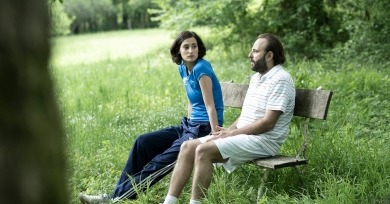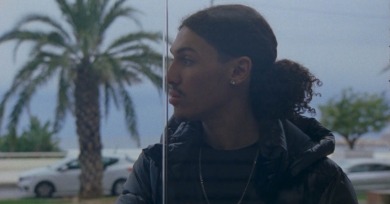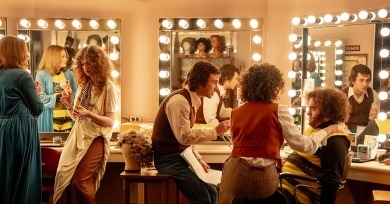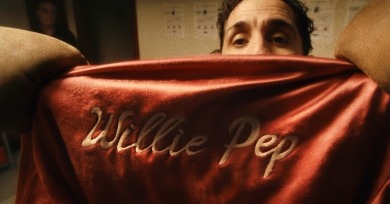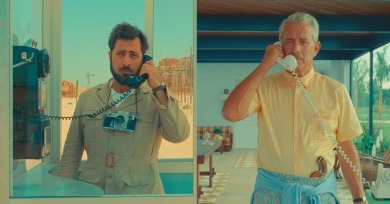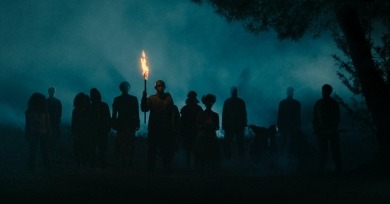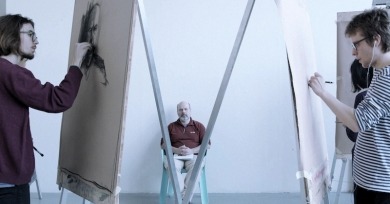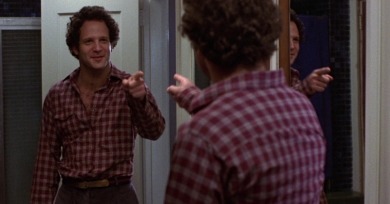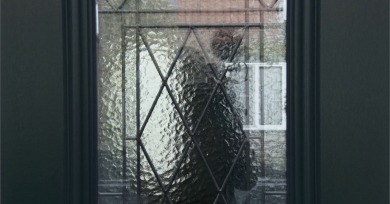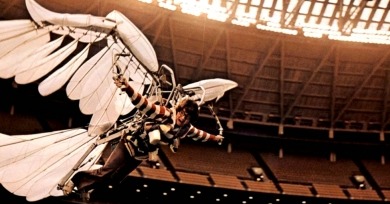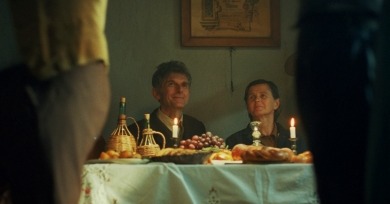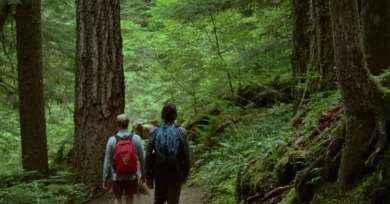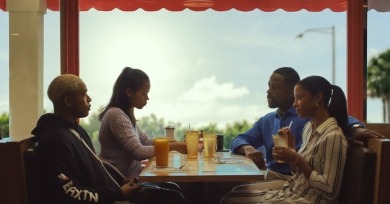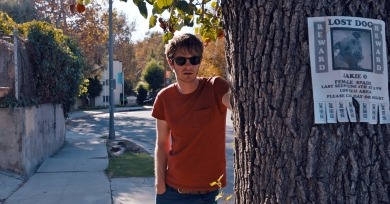Vikram Murthi
Target would eventually find its way on the Internet, where its charmingly unrefined style helped it fit in with the plethora of amateur video diaries, but it crucially exists within and beyond its particular early-to-mid-’90s moment.
Anyone privileged enough not to work in the public-facing service economy was compelled to generate new at-home routines during the early days of COVID. More so than its (scant few) pandemic-set contemporaries, Suspended Time acutely understands how previously occupied mental space in adults became vacant for the first time.
A vague pre-apocalyptic tension courses through the docu-style footage of Monaco at night, where sparkling lights only serve to highlight the desolation, as well as the cavernous yet claustrophobic domestic interiors, which feel like they are on the verge of swallowing inhabitants whole.
For better or worse, Aaron Sorkin has made his dramatic metier out of the kind of organized backstage chaos portrayed in Saturday Night; it cannot be understated how strange it is to watch someone poorly imitate his style, draining it of any rhetorical rhythm while retaining the self-importance.
The Featherweight actively engages with core ideas behind direct cinema and verité, residing in a blurry middle ground between the two genres, that is between minimizing a documentarian’s presence and actively participating in the action.
Eleven features and nearly 30 years into his career, it is a given that the form and content of his films are irrevocably intertwined. His controlled aesthetic tends to echo his characters’ meticulous personalities, environments, and routines.
In Tommy Guns, director Carlos Conceição depicts the victims of Portuguese rule in Angola as literal zombies. His approach takes a page from postcolonial studies, in which spectral metaphors abound: the legacy of imperialism haunts people long after colonizers have departed, poisoning the culture even without a corporeal presence.
Art Talent Show illustrates how hyper-individualism dominates artistic philosophy in the younger generation; many prospective students talk about wanting to communicate their essence or their worldview with their work.
The brilliance of Modern Romance lies in how Brooks, as the film’s co-writer, conflates the comedic and horrific implications of its romantic premise until they are indistinguishable from one another. The film is funny because it’s kind of disturbing, not despite that fact.
The premise/gimmick features Guido Hendrikx behind the camera as he approaches the doorsteps of strangers and stands there waiting for any kind of encounter.
Altman’s point is clear: we are constantly subject to casual injustices and banal evil. People in power can be fucked with, but they are rarely ousted.
There are fantastical elements in the film, mainly the presence of ghosts who play music when Dora and, later, Mario are near death, but they never intersect with the central relationship of Mario and Marta.
Amidst isolation and precautionary measures, this week's paired-up writers find momentary solace—if not true escape—in the worlds of confounded men trying to get away from it all.
The goal doesn’t seem to be to sincerely interrogate the ways people move through the world following a devastating loss, let alone maintain baseline fidelity to the actual contours of human emotion, but rather to poke at an audience in just the right places so they can experience catharsis via fictional suffering.
Mitchell crafts a shaggy dog mystery with various potentially aimless threads to create a pervasively hallucinatory atmosphere that suggests danger behind every corner and answers just out of reach.

